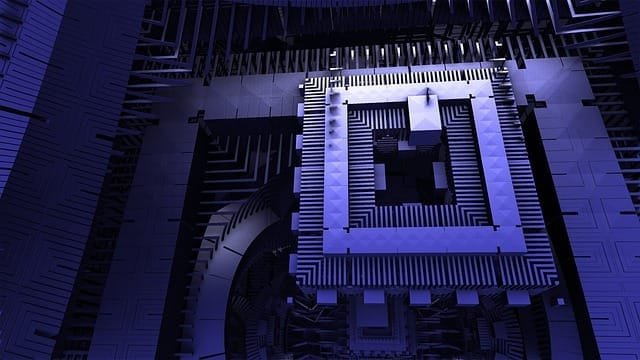The Quantum Frontier: Paving the Way for Next-Gen Space Exploration Technologies
Introduction
Quantum computing is a paradigm shift in this spectrum of computational capabilities. It can lead to incredibly transformative impacts. These impacts can be felt in as wide an area of influence as is needed, especially in space exploration technologies. Traditional computing is bit-based, where information exists in either a 0 or a 1 form. In contrast, quantum computing uses qubits. Qubits can exist in more than one state simultaneously. This ability enables processing and computation to be a thousand times faster. It becomes efficiently useful when applied in this field. Especially concerning complex computations necessary for the advancement of space technology.
The Role of Quantum Computing in Aeronautics and Aerospace
Quantum computation plays an important role in aeronautics and aerospace. It is crucial when we think about next-generational knowledge development about the universe through space exploration. The frontiers of space are becoming increasingly sophisticated and challenging to explore. They therefore require innovative solutions and newer methodologies in data analysis. Classical computing approaches often suffer from speed limitations. They also face processing power constraints, which limit the timely analysis of data fetched by space missions. In contrast, the applications of quantum computing promise to revolutionize how we simulate cosmic processes. They aim to optimize spacecraft trajectories and decode the rich datasets collected from distant celestial bodies.
Quantum Computing: Unlocking New Frontiers in Aerospace and Space Exploration
The quantum computing industry might accelerate further innovation in new algorithms. These algorithms are easier to solve than their classical counterparts. As a result, closer approximation models of gravitational waves are becoming more detailed. Models of black holes and other forms of astronomical phenomena also improve. These advancements continue through the current development process of computational power. The space and exploration processes of finding space are very complex. However, including quantum computing in space would make the industry recognized as a necessity. It would also be seen as an opportunity to explore just what could be done. Thus, diving deeper into the full potential of applications of quantum computing in aerospace opens up a new era. We stand on the eve of unleashing exploration and understanding. This brings a brighter promise for commitment to exploring the cosmos.
Quantum Computing Basics
Quantum computing is a paradigm in computing technology. It uses the principles of quantum mechanics to process information. This method is believed to transcend traditional computing capabilities. Essentially, quantum computing rests on two core concepts: superposition and entanglement. Superposition is the basis for qubits to exist in many states at once. This capability enables many calculations to be performed almost at once. Unlike classical bits, which can only be in one of the two states. Qubits exist in a state that represents both. This state remains until measured. This property improves the efficiency of computation dramatically.
Entanglement in Quantum Computing: Revolutionizing Space Technology and Communication
The other fundamental concept is that of entanglement. It is a special property. The states of two or more qubits become tangled. If there occurs any change in one qubit then others also get instantaneously affected regardless of their distance apart. This strong interdependence is useful in complex calculations. It allows for quicker and more secure communications. Therefore, it could impact industries such as space technology improvement.
Gate-Based vs. Analog Quantum Computers: Optimizing for Aerospace and Space Technology
Most quantum computers are divided into two categories: gate-based and analog. In a gate-based quantum computer, qubits are manipulated using quantum logic gates analogously to classical computational gates. On the other hand, the analog quantum computer makes direct use of the physical system. It does so in any computation without explicitly manipulating the qubits. These two kinds of quantum computing each have their advantages and disadvantages. Scientists are working hard to optimize their abilities. Their goal is to unlock new quantum computing applications.
Milestones in Quantum Computing: Transforming Space Exploration and Aerospace
Important milestones mark the journey of quantum computing. We started work on the first working quantum algorithms. Then, we demonstrated prototype systems showing specific superiority over classical computers. We are constantly at the cutting edge of critical innovation. As related research in quantum computing progresses, aerospace and next-gen space exploration are increasingly becoming tangible in their potential applications. These breakthroughs may soon redefine our approach to challenges in space exploration. They will make us much more capable of tackling problems that classical space exploration technologies usually can’t solve.
Applications in Space Exploration
Quantum computing plays a crucial role. It powers the cryptography at the core of secured communication between the spacecraft and a mission control Centre. Secret information and data will be flying around in space. Quantum cryptography will provide an exponentially higher degree of security. It will achieve this through evasion and detection of a possible threat. Thus, it will thwart malicious interference. Quantum key distribution will allow the agencies concerned to offer increased resistance by forming more secure channels of communication.
Revolutionizing Space Exploration and Mission Efficiency
Quantum computing is continually transforming the space exploration environment. It provides powerful solutions to many of the main challenges of the demanding field. One of the most significant applications of quantum and space exploration technologies pertains to the optimal exploitation of complex systems on spacecraft. Advanced algorithms enable real-time adaptation of onboard processes. These adaptations optimize efficiency and enhance the security of missions. Quantum computing provides a significant increase in computing power. This increase makes it possible to analyze large volumes of data collected from space. As a result, better decision-making is achievable.
Quantum Computing: Enabling Advanced Simulations and Material Innovation for Space Exploration
Quantum computing is proving to be vital for simulations and modeling that can be used in many astrophysical contexts. In space missions, this complexity requires strong simulations. These simulations help predict the outcome of possible problems. They also suggest solutions. Quantum algorithms can simulate cosmic complicated phenomena with remarkable accuracy. This greatly reduces uncertainties. In material science, quantum computing is enabling nanotechnology. Nanotechnology is becoming necessary in constructing novel materials. These materials are aimed for use within space applications. Quantum computing will lead to a whole new class of inventions for materials. These materials will be lightweight, tough, and suited for space. It will also allow the design and testing of these materials at the molecular level.

By progressing in the quantum computing space exploration domain, these applications are radically changing our capabilities in aerospace. They are also transforming what is possible in next-gen space exploration.
Breakthroughs and Innovations
The quantum computing space exploration domain has reached promising breakthroughs that promise to change the landscape of advancing space technology. The next area is advanced propulsion. This could be thrilling because they apply the quantum principle to provide unprecedented propulsion efficiencies. These efficiencies reduce travel time to such distant celestial bodies. Such technological advances could make missions possible that were previously considered impossible. They may also open up more avenues for the deeper exploration of our solar system and beyond.
Quantum Computing: Advancing Space Weather Forecasting for Safer Space Exploration
The applications of quantum computing are also turning out to be highly instrumental in advancing research into space weather. Quantum algorithms can provide more detailed models that predict events in space weather. These events include solar flares and cosmic radiation. This information is crucial to ensure the safe travel of astronauts and to protect sensitive equipment aboard spacecraft. A better, more reliable forecasting model reduces risks. It increases the possibilities of a successful mission. Here lies the importance of quantum computing in aerospace applications.
Quantum Computing: Revolutionizing Exoplanet Detection for Deeper Space Exploration
Another fascinating research is in exoplanet detection. Traditional methods of detecting planets outside of our solar system are limited due to large-scale output data. Nevertheless, quantum technologies can do much better in processing such vast datasets. Quantum machine learning techniques permit researchers to detect signatures of distant exoplanets much more efficiently and accurately. This innovative approach strengthens the search for habitable worlds and brings strength to understanding planetary formation and evolution.
Additionally, artificial intelligence and machine learning with quantum computing can further enhance data analytics capabilities. Quantum algorithms will manage the vast amounts of data from space missions. This will lead to more profound discoveries in less time. Aerospace development will reap a new wave of scientific discovery. It will also achieve technological accomplishment as AI, quantum computing applications, and next-gen space exploration techniques come together.
Challenges and Future Directions
Indeed, integrating quantum computing into space exploration presents many complex challenges. These challenges need to be identified and solved to benefit from its potential. The first is probably the problem of quantum noise and error correction that renders quantum computing applications drastically unreliable. Quantum states are highly sensitive. They could easily be spoiled by any external reason or even small environmental fluctuations. Hence, robust methodologies for error correction become mandatory. These new error management capabilities will further stabilize quantum systems for contributions to the advancement of space technology.
Scalability Challenges: The Next Frontier in Quantum Computing for Space Exploration
Another very significant challenge that features in the exploration landscape of quantum computing for space is scalability. Quantum devices that have been developed up to date have relatively low counts of qubits with limited computational abilities. Such future development will require scaling to thousands of qubits while remaining coherent. This calls for innovative engineering and a novel design of current architectures. Next-generation space exploration relies on developing scalable quantum solutions. These solutions must handle the enormous amounts of data generated in space missions efficiently.
Interoperability Challenges: Bridging Quantum and Classical Systems in Aerospace
Besides that, interference between a quantum system and a classical one also poses a problem for interoperability. Effective quantum computing must be developed. It should seamlessly interface with hybrid systems that execute advanced space-related computations in practical aerospace applications. Overcoming interoperability problems will require lots of interdisciplinary collaboration. It will need new innovative systems architectures. There must be a shared understanding of quantum mechanics and how it applies to space exploration technologies. Solving these challenges will not be easy.
Talent Development: Bridging Quantum Physics and Aerospace Engineering for Space Exploration
Other than technical issues, another area critical to advancing quantum applications in space exploration is talent development. In this field of study, there is a deeper need for highly skilled individuals. They must have a comprehensive knowledge of quantum physics and aerospace engineering. Universities, research institutions, and the private sector must collaborate. This partnership will go a long way in developing new science and engineering in the country. It will also make scientific breakthroughs in space exploration possible.
Conclusion
For this blog post, we have explored the transformative possibilities of quantum computing in the domains of space exploration. With such applications, space technology is no longer restricted to traditional paradigms. It is empowered by the strong capabilities of quantum computing. This has resulted in new applications of quantum computing that will transform the way people navigate and explore the cosmos.
Real-Time Data Processing: Quantum Computing’s Role in Next-Gen Space Exploration Technologies
Quantum computing can process unprecedented amounts of data produced by space missions. It does this at speeds that no human has experienced before. This capability opens the possibility to analyze data in real time. It enhances one’s decision-making capabilities in the complexities associated with next-gen space exploration. These space exploration technologies will enable the designing of more efficient spacecraft. They will optimize mission trajectories. Additionally, they will simulate complicated phenomena related to space travel and planetary science.
Quantum Technologies in Aerospace: Solving Space Exploration Technologies Persistent Challenges
Quantum technologies in aerospace promise increased computational efficiency. They also introduce new methodologies for solving some of space exploration’s most enduring problems. This evolution empowers researchers to solve some of the perennial problems. These include resource allocations in far-out missions and advanced materials development. These materials can withstand harsh environments in space.
Shaping the Future of Space Exploration through Quantum Computing
Future research directions should continue to harness quantum computing capabilities for the mentioned challenges. Researchers should also explore potential applications within terrestrial and extraterrestrial contexts. Stakeholder and public engagement in this exciting field is essential. Current progress in quantum computing will lead us to uncharted territories in our universe. Before us stretches a journey that promises rich chances for discovery. We must stay informed and engaged. We will take part in shaping the story of quantum computing with the advances made by space technology.







